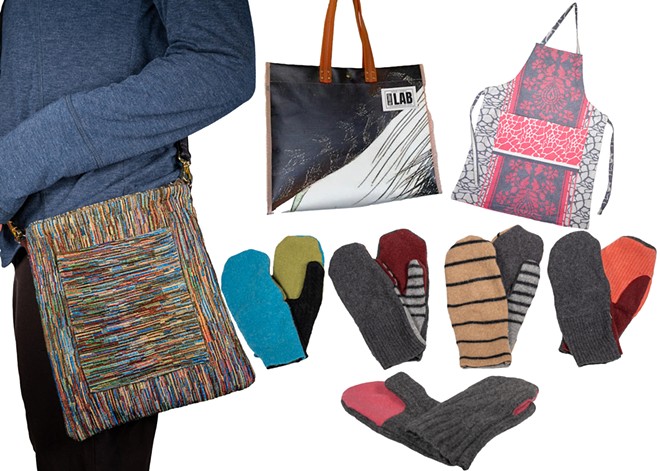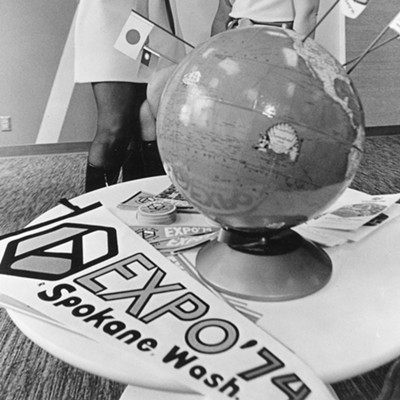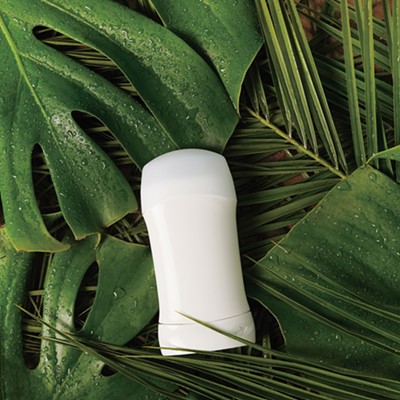Every year the city of Spokane produces about 30,000 tons of textile waste: threadbare T-shirts, worn-out bed sheets, shrunken sweaters and much more.
What's not donated to thrift stores (even there, only a fraction finds a new home) but gets tossed in the garbage can is either incinerated at the Waste to Energy plant or trucked to a landfill. Many of these textiles, however — even those pieces that may seem destined for disposal — might have a second life as mittens, bags or something else.
Spokane Zero Waste, a nonprofit founded in 2023, is working to educate the community on different ways to reimagine these discarded textiles. It's part of the nonprofit's broader mission to reduce the region's waste footprint while ensuring the stuff that is tossed out goes to the right stream, whether that's compost, recycling or, as a last resort, the landfill or incinerator.
"It's the primary problem of our lifetime," says Elyse Hochstadt, executive director of Spokane Zero Waste. "We have to figure out how to stop making waste."
Among the organization's many programs is Project Woven, which collects textiles for upcycling while also helping local refugee women find employment in their new community.
Project Woven launched last summer, and currently has two participants who are Afghan refugees. Both born and raised in Afghanistan, the 27-year-old mothers each have six children, and their husbands worked with the U.S. military before its evacuation in 2021, after which they were forced to flee.
"I first met up with an Afghan refugee to help her with the language," says Pam Davies, a volunteer with Spokane Zero Waste. "I brought my sewing machine and some material. We talked about different [sewing] terms, and she copied a tote bag without any direction from me."
Davies' sewing and language lessons with the Afghan seamstress happened to coincide with Spokane Zero Waste's application for a grant from NextCycle Washington, Hochstadt says.
A collaboration between the Washington State Department of Commerce and the state's Department of Ecology, the grants are intended to support the circular economy, a system focused on reusing materials for sustainable living.
"We thought we could use some of the funding to try and figure out if it was viable to develop a handicraft line using upcycled textiles," Hochstadt says.
Project Woven currently partners with Global Neighborhood Thrift & Vintage and Spokane Art Salvage to acquire textiles for its projects, along with donated materials. Its two employees have so far made mittens, aprons, meditation pillows and purses.
Another recent project involved upcycling vinyl banners and billboards used during past exhibits at the Northwest Museum of Arts and Culture. The vinyl was made into totes, bags and pouches, now sold at the MAC's gift shop.
Website: spokanezerowaste.org
Instagram/Facebook: @spokanezerowaste
Project Woven's two Afghan seamstresses have sold more than half of the nearly 300 pieces they've made so far at local church bazaars and the monthly 33 Artists Market.
Spokane Zero Waste organizes other textile reuse programs like the monthly Mend-It Cafe, which offers chances for people to bring well-worn clothing in need of repair. Volunteers are on hand to help extend the life of such pieces, keeping them out of the waste stream.
The nonprofit has also hosted upcycle fashion labs for middle and high school students.
Eliminating waste of all kinds is Spokane Zero Waste's mission.
"The capacity of our incinerator [at the] Waste to Energy plant is 800 tons a day, and we start to exceed that limit as we get into the event season," Hochstadt says.
The team at Spokane Zero Waste understands that determining what belongs in residential garbage, recycling or compost bins is sometimes difficult, so they launched a Waste Ambassadors program to help people decipher what goes where.
Volunteer waste ambassadors are now attending large local events, like Bloomsday and the Expo '74 50th Anniversary kickoff. Wearing green upcycled aprons made by Woven's employees, the ambassadors set up disposal stations, ready to assist people with trash.
"We'd love to support all the events everywhere, but we are a small organization trying to tackle a big problem," Hochstadt says. "We engage a lot in what has become known as wishcycling. Wishcycling ends up becoming trash because if you have too many contaminants in a bin of recyclables, it can't be cleaned. It just ends up going to trash. The waste ambassadors are there to help minimize contamination."
Hochstadt plans to present the nonprofit's observations, including the total weight of all refuse collected through its waste ambassador program, to Spokane City Council in hopes of developing city policies to help eliminate waste.
"[We're] trying to kindly negotiate a different relationship between people and the waste they make," Hochstadt says, "[so] that we really understand that this relationship with waste is detrimental to our own well-being." ♦




















